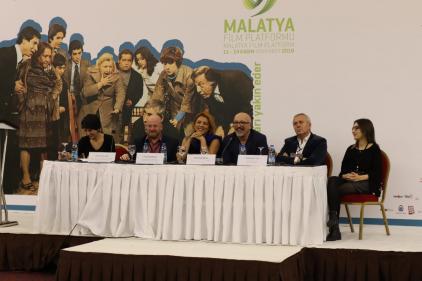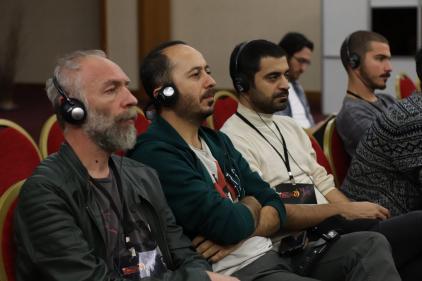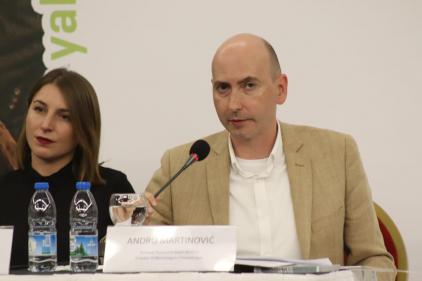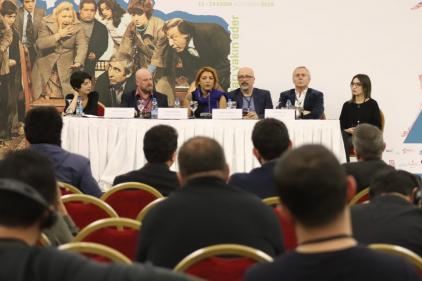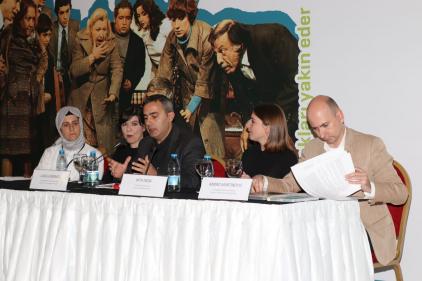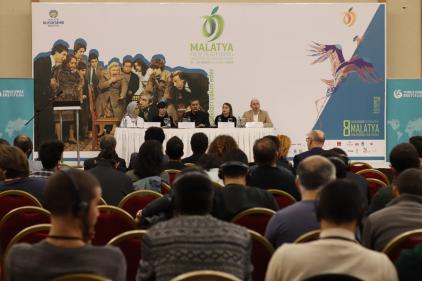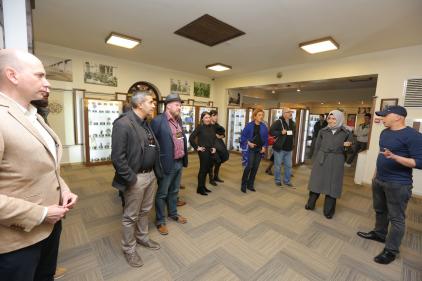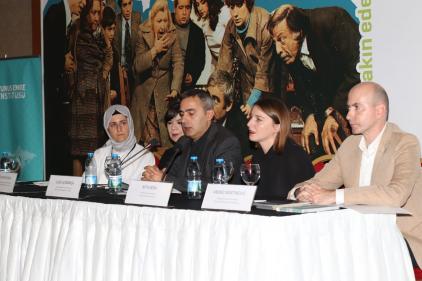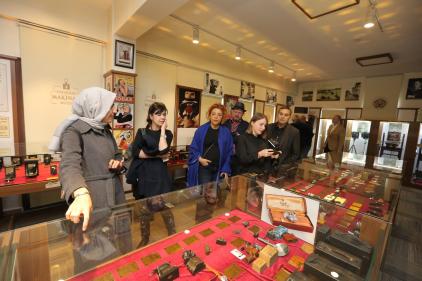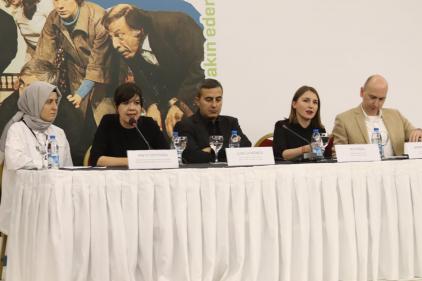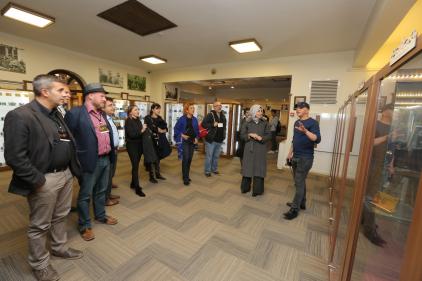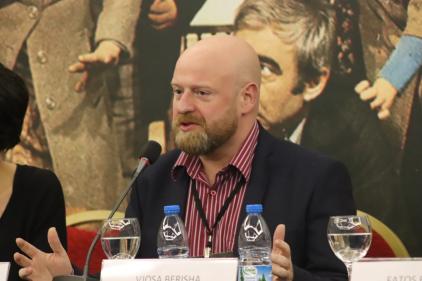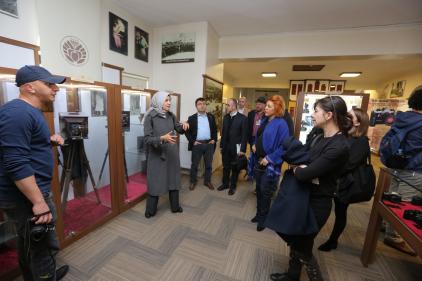"Festivals in Malatya!"
Yunus Emre Institute has held a first-ever event at the Malatya Film Platform, organized as part of the 8th Malatya Film Festival. At the platform, launched in 2017, a panel titled "Festivals in Malatya!" was organized with the participation of the executives of international festivals from six countries (Kosovo, Hungary, Italy, Albania and Macedonia).
Yunus Emre Institute Strategy Development Director Bülent Üçpunar delivered a keynote speech at the panel held on November 11, 2018, pointing out that cinema constituted a direct and effective way for diverse societies to get to know each other.
Noting that the Institute was organizing movie screenings, movie premieres, director/actor interviews, and sector meetings throughout the year at its 56 cultural centers in 46 countries, Üçpunar stated that they attached great importance to bringing together the film festivals in these countries at this event held in Malatya. He indicated that the Malatya International Film Festival paved the way for bringing together not only films, directors, and actors or actresses, but also the festivals and institutions.
Recalling that Yunus Emre Institute had previously undertaken various events such as the "Turkish Cinema Summer School," which had been carried out in cooperation of İstanbul Şehir University and with the participation of 23 young filmmakers from 20 countries, Üçpunar underlined that the Institute had also lent support to the "Turkish Films Week," conducted in 10 different cities so far, as well as the events organized by other institutions and people.
Subsequently, the panel was performed in the form of two session with the participation of the festival directors, and Dea Film Festival (Albania) Director Edmond Topi talked about the festival they organized in Sarandë. Noting that they organized the festival without a movie theater, Edmond Topi explained that the program of the festival, held 300 km away from Tirana, contained feature-length and short-length films with cross-border themes, and during the festival, master classes, workshops and various academic activities were held. He added that they also aired Turkish films during the festival that lasted for eight days.
DokuFest (Kosovo) Project Manager Nita Deda said that DokuFest was one of the leading festivals on documentaries and some 250 documentaries would be aired during the festival. She explained that in addition to documentaries, they would also air Balkan films ad short films and organize competitions with feature-length film and short-length film, human rights and national categories.
Manaki (Macedonia) Film Festival Program Coordinator Aneta Matovsk noted that the festival held in Bitola is the world's oldest festival in the field of cinematography. She pointed out that three competitions in gold, silver and bronze categories were organized at the festival which also hosted activities and competitions in the field of photography and aired Turkish films and invited Turkish directors.
Following a general briefing about the festival they organized, Miskolc Film Festival Art Director Geza Csakvari stressed that they provided extensive support to the productions jointly undertaken with Hungary, calling for cooperation with sector representatives.
Pristina Film Festival (Kosovo) Director Vjosa Berisha and Art Director Fatos Berisha underlined that they organized a large forum for sector representatives within the context of the festival in question. They maintained that they had close ties with the sector representatives in Turkey and they would give various awards to the Turkish films during the festival and provide production supports to them.
Lecce European Film Festival (Italy) Director Luigi la Monica and Montenegro Cinema General Manager Andro Martinovic provided information on the festivals they organized, including application and evaluation procedures.

